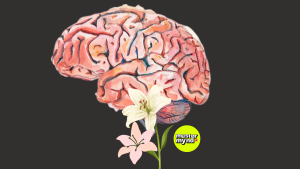It feels weird but interesting to address the link of body inflammation to depression. Anyway, let’s get into the topic. Depression, a complex mental health condition, has been the subject of extensive scientific investigation for a very long time. Recent researches claim a link between depression and the inflammatory response of the body. Inflammation, which is commonly associated with physical maladies, is now believed to play a significant role in the onset and progression of depression. So, here, we’ll discuss the intriguing relationship between inflammation in the body and depression, which precedes all “the latest/emerging Western research.”
Understand How Body Inflammation is Linked to Depression
Depression and Inflammation
Depression has traditionally been considered purely psychological. But now, every other day, the West is publishing an article or two on new researches claiming that inflammation in the body may contribute to depression. The release of pro-inflammatory compounds in the body is triggered by chronic inflammation, which is often the result of a poor diet, sedentary lifestyle, stress, or medical conditions. These compounds are capable of crossing the blood-brain barrier and interfering with the normal functioning of neurotransmitters, which regulate mood and emotion. This disruption can result in depressive symptoms and even exacerbate an existing depressive state.
The Immune System’s Function
The immune system is designed to defend the body against harmful invaders. It plays a significant role in the development of melancholy. When the immune system detects inflammation in the body, it releases molecules that communicate with the brain called inflammatory cytokines. These cytokines have been observed to be elevated in depressed individuals. These molecules can affect the structure and function of the brain, contributing to depressive symptoms. In addition, chronic inflammation can increase oxidative stress, which impairs the brain’s ability to modulate mood and raises the risk of depression.
BiDirectional Link: Inflammation and Depression
The relationship between body inflammation and depression is not unidirectional but bidirectional. Despite the fact that inflammation can contribute to the development of melancholy, depressive symptoms can also induce inflammation in the body. The stress response associated with melancholy stimulates the immune system, leading to an increase in pro-inflammatory chemicals. This inflammatory response exacerbates depressive symptoms, generating a vicious cycle between mental health and inflammation.
Link of Body Inflammation to Depression: What is New?
I have noticed one thing that the West, I mean almost every major publication in the US or US Universities, before publishing any paper, they pull down the shutters on the origin of the knowledge. The West is certainly ahead of the East in many ways but that doesn’t mean the East has no original offering. In fact, the link between body inflammation to depression is as old as the East’s practice of traditional medicines. I am surprised that the West is forgetting Ayurveda in India, which revealed the link between depression and inflammation centuries ago. The East didn’t have well-defined laboratories or departments and functions but the East did have a holistic approach to the body and thus the West claiming the link of inflammation to depression is juvenile.
Who is Neuroscientist Richard Sima?
“Richard Sima is a neuroscientist turned award-winning science journalist who writes the “Brain Matters” column for The Washington Post’s Well+Being desk.” His published article in the Washington Post on “How inflammation in the body may explain depression in the brain” doesn’t mention any Traditional Chinese Medicine (TCM) or Indian Ayurveda. He seems to me a baby neuroscientist writing naive articles, which question his prowess for research or acknowledgment. Being part Asian, it doesn’t befit him to glorify Western scientific papers with no mention of Asian contribution in this area.
Closing Note for Aspiring MHPs
I would encourage every mental health professional to attempt a holistic approach to not only diagnose, treat, and counsel patients with mental health issues, but also be well-read and considerate of research and discoveries that precedes our knowledge or the advent of ChatGPT. I will publish at least five more essays on this issue of the West forbidding the contribution of the East in medicinal practices and discoveries. Credits must reach the origin of the information if not the deceased geniuses, or who so ever is the first to give their life to the making of this future we inhabit.




